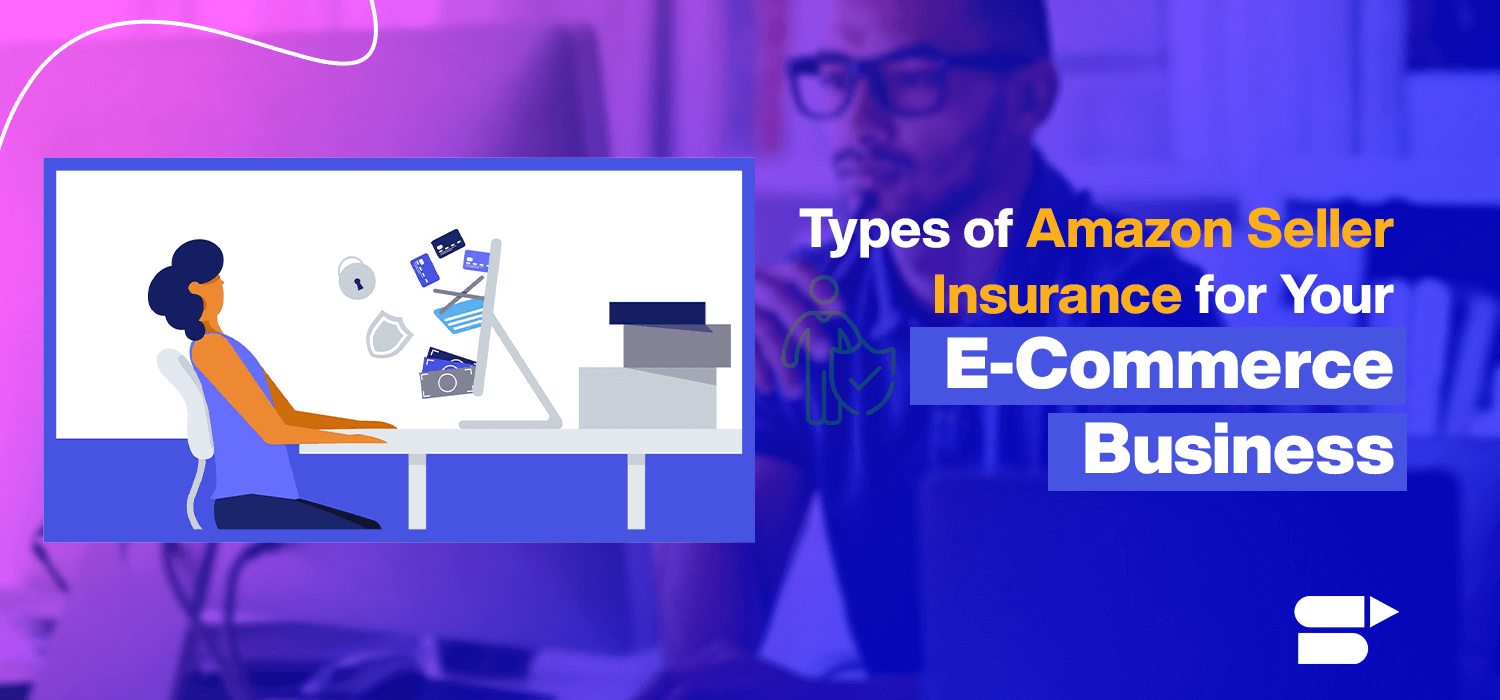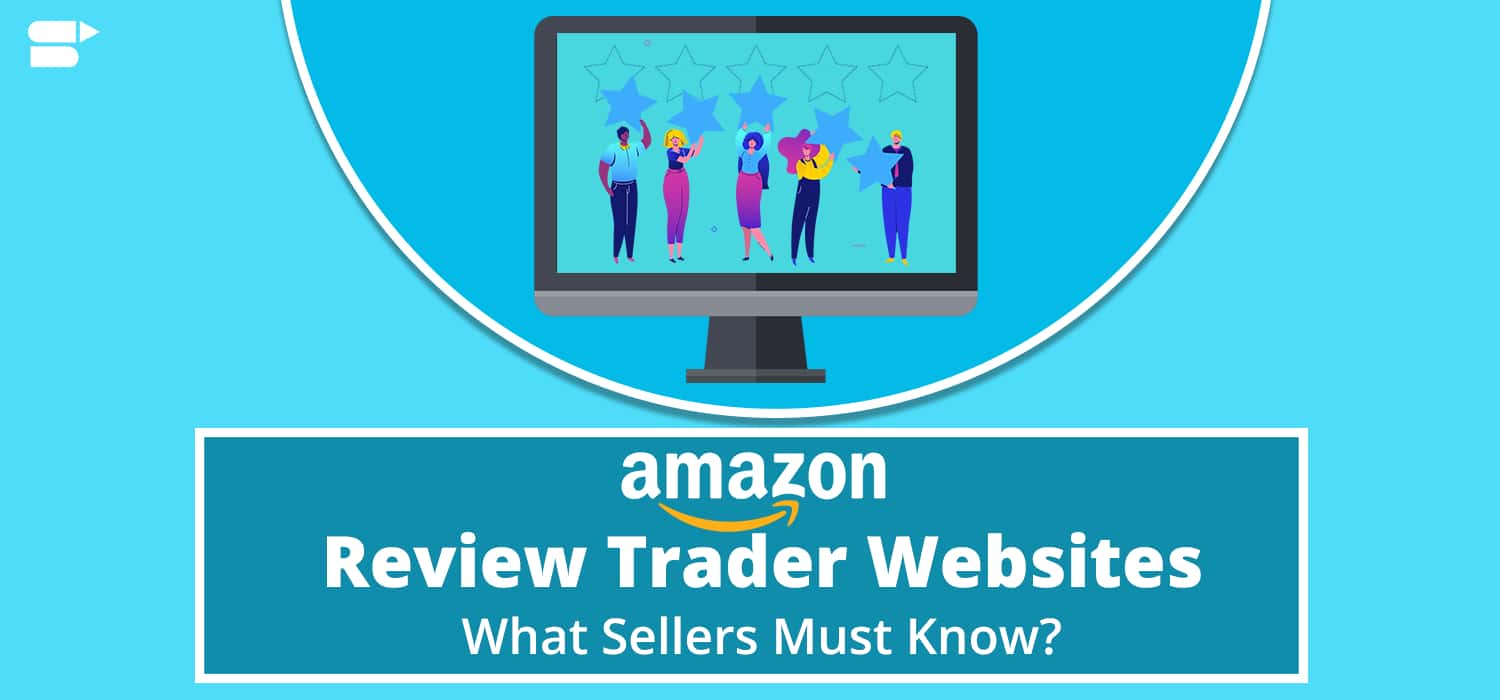Best Types of Amazon Seller Insurance For Your E-Commerce Business

What’s the deal with liability insurance coverage? Do I need one?
These are common questions from newbie sellers. With the changes in Amazon seller central, you need to have retail liability insurance coverage for your Amazon business. If you don’t have one, it’s time to get started.
Today’s guide will help you understand various liability insurance options available for your Amazon business.
What is product liability insurance?
You may not be selling a dangerous item, but it doesn’t mean that you don’t have liability.
All it takes is a defective item to put you out of business.
Why do you need it?
As your business grows, so will your liability. Whether you are a reseller or selling your products, you need Amazon seller insurance to safeguard your business.
In fact, you might have heard about the woman who spilled hot coffee on her lap and won a ton of money against McDonald’s over a lawsuit.
So if you have proper liability insurance or marketplace protection for your Amazon business, the small business insurance company will fight for you over the lawsuits.
What is General Liability Insurance?
Whether a private label seller or retail arbitrage, general liability insurance is the most basic insurance coverage to safeguard your business. It takes care of injuries and property damage. They also protect you from legal fees, judgments, and settlements if you are sued and the case goes to the court.
Do I need one?
Yes, if you want to smooth out any unknown business risks that can come up in the future. Typically, you’ll spend a lot less than the cost of a lawsuit to buy general liability insurance coverage.
Do Amazon sellers need to carry product liability insurance along with general liability insurance?
One of the common myths I’ve heard is – if I’m a retail arbitrage seller or a wholesaler, I am not liable for the damaged or defective product.
Well, that’s not true!
You may not be held entirely responsible for the damage, but you may still be pulled into the lawsuit. Without product liability insurance, you can even fight it in court. However, if the lawsuit goes through, you’ll end up paying a million dollars.
So an insurance policy or a million-dollar lawsuit? Buying a policy is the smart thing to do.
Also, it is not much expensive when you bundle it with general liability insurance.

What about Amazon Suspension Insurance?
Amazon suspension insurance is a relatively new line of coverage for e-commerce merchants selling on Amazon. Insurance agencies will cover your monetary expenses should your Amazon account be suspended.
Similar to product liability insurance, you can bundle up this policy with your general liability insurance.
Shipping and cargo insurance
Have you ever thought about what happens to your business if you lose the stock during transit?
Shipping damages are real. They impact your cash flow and brand substantially, so choose adequate shipping insurance cover with utmost importance.
A few insurance companies will take full responsibility for conducting negotiations and custom clearance with the transportation firm in case of damage or loss of the goods.
While choosing shipping insurance for your Amazon FBA business, you need to consider the following:
- Decide which items need to be insured
Most of the shipping insurance services offer default coverage for major carriers. You need to check these defaults and evaluate shipment value as well as the risk factors to determine if you need any additional insurance coverage.
- Understand how the claim process works
Get familiar with the filing process, applicable timings, requirements to prove shipment loss, and typical settlement timelines.
- Understand the items that can be covered and cannot be covered
Agencies will not provide insurance for certain types of products. So make sure you know the limitations and see if your products are covered.
How to determine the best liability policy coverage for your Amazon business?
As I said, businesses face liability every day. So you need to have commercial or general liability insurance as the first line of defense against common claims. The right insurance coverage will give you much-needed peace of mind as you continue to sell and scale your Amazon business.
Online marketplaces are thriving with opportunities, so is retail arbitrage. With incredible opportunities come unique risks. So you need to pick the right insurance cover for your Amazon arbitrage.
How do I go about it?
When you are applying for liability insurance, let the company know everything about your business and what your product does.
For example, you’re a private label seller with your product manufactured overseas. You are considered a manufacturer, and you’ll have colossal product liability. This may not be the same for a retail arbitrage seller.
Apart from the business model, your agent must be familiar with Amazon FBA and FBM. If not, make sure you find one who has enough knowledge about the Amazon marketplace.
Amazon sellers’ insurance terms

While no one reads Amazon service business solutions agreement cover to cover, one needs to take a critical look at the ‘Insurance’ section.

According to Amazon TOS, if you are a professional seller, you must have:

“Commercial General Liability (CGL), Umbrella and/or Excess Liability Insurance coverage with limits of not less than:
$1,000,000 per occurrence, $1,000,000 in the aggregate for products and completed operations, and $1,000,000 in the general aggregate. Such insurance must include products liability, products/completed operations, bodily injury, personal injury, broad form property damage, and broad form contractual coverage.”
Additional insured wordings must be as follows:
“Amazon.com., Inc., its affiliates and assignees are additional insureds, as their interests may appear.”
Check out this guide to know about Amazon Affiliate Marketing.
Amazon wants you to take general liability insurance worth $1M, and add Amazon as ‘additional insured.’ It means Amazon is protected by your policy when applicable.
So let your agent know that you want to include this on your Certificate of Insurance. Make sure to use the exact wordings provided by Amazon.
You need to submit proof to Amazon that the insurance is active.
| You can get a best-priced insurance quote in just 3 minutes with Spottme.com |
Conclusion
Having an Amazon seller insurance policy is critical to protect your business and succeed on Amazon. Today, the e-commerce marketplace is thriving and giving consumers the flexibility to sue anyone, so you need to shield your business. If you don’t have Amazon product liability insurance, make sure you get it. If you already have one, revisit the policy and update the terms based on your product and business feasibility. In the end, smart selling is the right thing to do.
Additional Read:
3 Things Amazon Sellers Need to Know
Online arbitrage vs retail arbitrage
What is the Amazon Business Seller Program










James
February 1, 2021Informative blog
Thank you for sharing.
Arishekar N
June 15, 2021Thank you.
Prab
May 25, 2021A good resource for amazon sellers
Arishekar N
June 15, 2021Thank you.